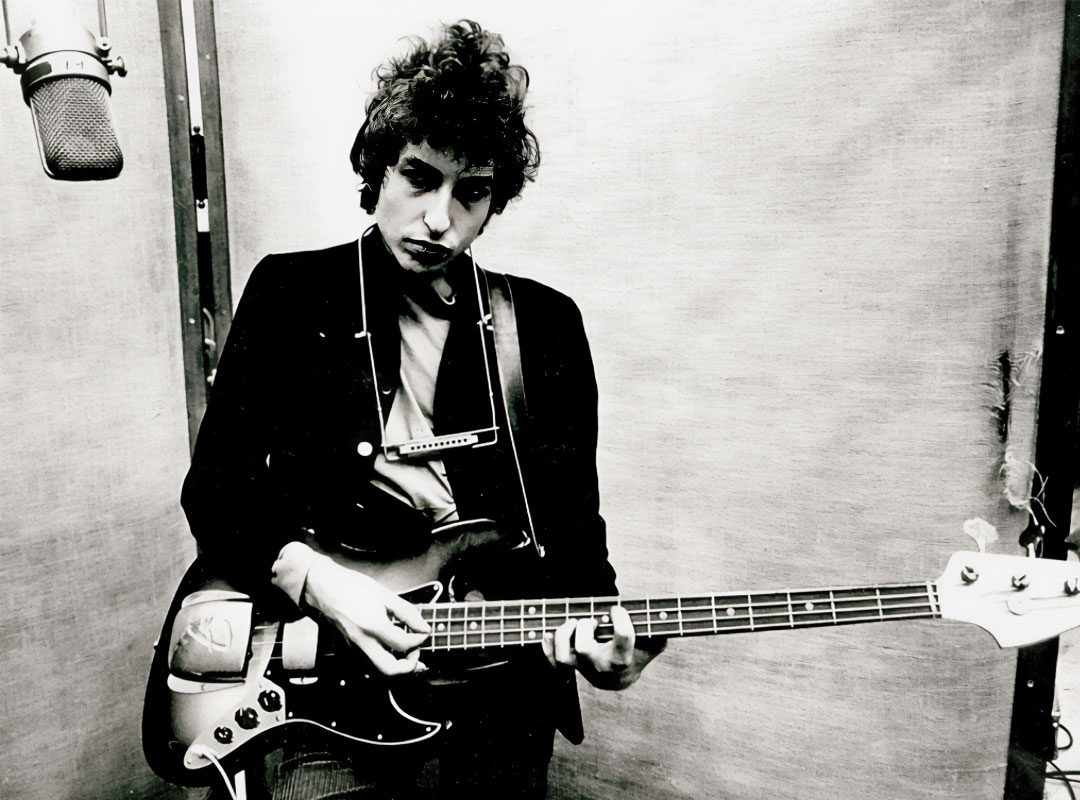Carolyn Mary Kleefeld – Contact Us
Please fill out form as completely as possible so we can contact you regarding your request.

Photo: ©Globe Photos/ZUMAPRESS.com/Alamy
Bob Dylan is often regarded as one of the greatest singer-songwriters of all time, and he has been a favorite musician of both Carolyn and mine for decades. With a prolific career spanning more than 60 years, Dylan has profoundly influenced music and popular culture in many ways, with his unique poetic gifts, acute political awareness, and natural storytelling abilities.
Born Robert Allen Zimmerman in 1941, and raised in Hibbing, Minnesota, Dylan’s grandparents were Jewish refugees from Russia and Lithuania, who arrived in the United States around the turn of the 20th Century.
While attending Hibbing High School, Dylan performed in several bands. He played cover songs by Elvis Presley and Little Richard in a band called The Golden Chords, and his performance of Rock and Roll is Here to Stay with Danny & the Juniors at his high school talent show was so loud that the principal cut the microphone during mid-performance.
In 1959 Dylan enrolled at the University of Minnesota, where he studied American folk music. Dylan started performing at coffee shops around this time, and he began introducing himself as “Bob Dylan” to give himself anonymity and recreate his persona. He used various aliases initially in his career, such as “Elston Gunn” and “Robert Dillion,” but Bob Dylan is the one that stuck.
In 1960, after his first year in college, Dylan dropped out of school, and a year later he traveled to New York City where he went to perform, and he visited his music idol Woody Guthrie, who was seriously ill in the hospital. In 1961 Dylan began playing in clubs around the Greenwich Village neighborhood of Manhattan and often accompanied other folk musicians on the harmonica. When Dylan was 19, he performed at the Café Wha? in Greenwich Village, which was started by our beloved friend Jai Italiaander and her husband.
That same year Dylan played the harmonica on an album by Carolyn Hester, which brought his work to the attention of the album’s producer, who signed Dylan on to Columbia Records. Dylan’s first album, Bob Dylan, consisted of traditional folk, blues and gospel songs, with only two original compositions. The album sold just enough copies to break even, but Dylan was starting to become better known.
Dylan’s second album, The Freewheelin’ Bob Dylan, was released in 1963, and his music— often labeled as “protest songs,” with lyrics that questioned the social and political status quo— became more popular. This album contained his well-known song Blowin’ in the Wind, which was partly derived from the melody of a traditional slave song. Along with the politically charged The Times They Are a Changin, these songs became anthems for the antiwar and civil rights movements of the 1960s.
Dylan’s revolutionary third album Bringing it all Back Home, which was released in 1965, featured his first recordings using electric instruments, and with free-association lyrics that were reminiscent of beat poetry. Using electric instruments with folk music caused some controversy within the folk music establishment, but Dylan’s popularity continued to soar. Dylan has since gone on to sell more than 125 million records, making him one of the bestselling musicians of all time. To date, Dylan has released 39 studio albums, 95 singles, and 15 live albums.
Dylan has strong spiritual beliefs and he has “always thought that there’s a superior power.” Although Dylan was raised in a small, close-knit Jewish community, and even had his Bar Mitzvah when he was 13, he converted to Christianity in the late 1970s and has released three popular albums of contemporary gospel music.
Dylan’s lyrics have received detailed attention from academics and poets. In 1998 Stanford University sponsored the first international academic conference on Dylan’s work, and in 2004 Harvard Classics professor Richard Thomas created a seminar on Dylan’s song lyrics, that put him in the context of classical poets like Virgil and Homer.
Dylan has been inducted into the Rock and Roll Hall of Fame and has won numerous other prestigious awards, including 10 Grammy Awards, the Presidential Medal of Freedom, a Golden Globe Award, an Academy Award, a Pulitzer Prize in 2008, and a Nobel Prize in Literature in 2016. Dylan has also published eight books of drawings and paintings, and his watercolor and acrylic work has been exhibited in major art galleries around the world.
Some of the quotes that Bob Dylan is known for include:
There is nothing so stable as change.
I consider myself a poet first and a musician second. I live like a poet and I’ll die like a poet.
I change during the course of a day. I wake and I’m one person, and when I go to sleep I know for certain I’m somebody else.
I think of a hero as someone who understands the degree of responsibility that comes with his freedom.
I define nothing, not beauty not patriotism. I take each thing as it is, without prior rules about what it should be.
Yesterday’s just a memory, tomorrow is never what it’s supposed to be.
You’re going to die. You’re going to be dead. It could be 20 years, it could be tomorrow, anytime. So am I. I mean, we’re just going to be gone. The world’s going to go on without us. All right now. You do your job in the face of that, and how seriously you take yourself you decide for yourself.